AI vs human creativity Part 1: Examining the impact of AI on the music industry
In a recent interview with BBC Radio 4, former Beatle Paul McCartney talked about something that would make Beatles’ fans happy. McCartney revealed that a song from the last record created by the band before they disbanded will soon be unveiled, and what makes this release particularly intriguing is the utilisation of Artificial Intelligence (AI) technology to revive John Lennon’s voice.
“When we came to make what will be the last Beatles record – it was a demo that John had that we worked on and we just finished it up, it will be released this year – and we were able to take John’s voice and get it pure through this AI,” McCartney said.
While acknowledging the good use of AI, McCartney termed it as “kind of scary”. Well, the scary aspect is what much of the world is worried about!
While this seems to be a simple, innocuous use of the AI technology that would make music lovers, especially ardent Beatles fans, happy, the increasingly wider use of AI in creating music has come under the focus of analysts.
Early this month, French streaming service Deezer launched a new technology to detect and delete any songs on the platform made using AI that might clone popular singers’ voices. The company CEO Jeronimo Folgueira said that the idea is to weed out illegal and fraudulent content to safeguard artists.
The music industry is divided. While pop singers like Grimes have no problem in getting their voice cloned with AI, the likes of Sting have an issue with AI music. The British singer said that the “building blocks of music belong to us, to human beings”.
Grimes has offered to split “50% royalties on any successful AI-generated song that uses my voice”. But Sting said he gets immediately “bored when I see a computer-generated image. I imagine I will feel the same way about AI making music”.
The influence of AI in music has grown to such an extent that The Recording Academy, responsible for the Grammy Awards, has introduced new protocols stating that music created solely by AI cannot be considered for a Grammy nomination. However, work produced by humans utilising AI technology remains eligible, as long as there is a substantial human contribution involved.
“The Grammy Award recognises creative excellence… Only human creators are eligible to be submitted for consideration for, nominated for, or win a Grammy Award. A work that contains no human authorship is not eligible in any Categories,” says the authority.
Nothing beats human creativity
In this two-part feature report, Adgully seeks to examine the multiple implications and ethical aspects of AI-generated music. The moot question is: is AI-generated music good or bad? Will it kill human creativity and ingenuity or complement it?
Like any other AI-generated content, the impact of AI-generated music on human creativity and ingenuity is still being debated, points out John Paite, Chief Creative Officer, Media.Monks India (Tech +Art).
“While AI technology has made it possible to create music that is algorithmically generated and indistinguishable from human-created music, it is important to note that AI cannot replace the human element of music creation,” he says.
He argues that AI-generated music can complement human creativity by allowing musicians to experiment with new ideas and sounds that they would not have thought of otherwise or it can also be used as a tool to aid in the creative process, providing suggestions and inspiration to musicians. However, he adds, it is unlikely that AI will completely replace human creativity when it comes to music.
“Music is more than just a series of notes and rhythms; it is a deeply emotional and personal expression of the human experience. AI lacks the capacity to create music that is imbued with the same level of emotion and meaning as human-created music. In conclusion, AI-generated music can be a valuable tool for musicians, but it is unlikely to replace human creativity and ingenuity in the realm of music creation,” stresses John Paite.
“Music is a beautiful art form, and the soul of any piece of music, literally, is the artist’s human touch,” points out Vincent Kola, Creative Supervisor - Design & Video, SoCheers.
“Technology has always helped push the boundaries of creativity with music and sound production, but with the introduction of intelligence that can ‘think’ music, the questions we want to ask are, how much of the creative aspect of the music production is organic? How much of the music is personal? That’s where I feel we have a clear differentiation between what is good or bad music. With AI tools that help in the process of music production, the AI-generated elements in any piece of music will only be as bad or good as the artist who is using it. If AI is being used to generate music entirely, by creators who are not primarily musicians or artists, then I do not see how anyone can have an authentic emotional experience, considering the music was made by a robot. I would definitely call that bad music as music demands that it is personal and emotional. AI algorithms can surely be used in identifying patterns and styles that can be used to generate fresher, original compositions. Musicians and producers who will include AI in their workforce will ride a high efficiency wave,” says Vincent Kola.
On the other hand, he adds, an overuse in AI-generated music for commercial purposes like stock music for videos, background score for movies, etc., could affect human creativity.
He sounds the alarm bells if AI is overused in the creativity field, especially advertising. “In an industry like advertising, where music is an essential raw material, it can lead to an overuse of purely AI-generated music which will affect the musical style and genres on a culture level. We may see a fixed similarity in musical styles as algorithms tend to favour popular trends and established patterns. This could result in a reduction of diversity and originality. A lot of artists might lose potential projects or may have to change the way they now contribute towards music production,” he adds.
Meanwhile, Rohan Thakar, Co-Founder & Creative Producer, Ep.Log Media, sees the brighter side of AI in music. Any product of science and innovation has two sides, opines Thakar. On the good side, he points out, AI-generated music has truly democratised the process of music creation.
“Take, for example, something as simple as Garageband. The app has made music production so simple that even a 7-year-old kid can create music. Fast forward to the AI era, as a music producer, you just need to provide a thought or brief about what you want your music to sound like! It’s a game-changer even for the podcast space. Our turnaround time for high-quality podcasts will decrease from days to mere minutes. Just imagine having Hans Zimmer as the music composer for your podcast!” exclaims Thakar.
While all of this is good, he adds, mimicking is a genuine concern. “As we move forward with time and future developments, it will become increasingly difficult to differentiate between real and AI-generated music. However, this era will also give rise to many new artists who never had the chance to learn music professionally. This new age will create something very different and will be able to fuse varied cultures through their expressions. If we are concerned about AI killing human creativity, I believe that forms change, but creativity can never fade away if we continue to innovate. We are excited to see what AI-generated music can do for us,” he says.
AI-generated music is neither inherently good nor bad; it depends largely on how it is utilised, opines NoCap Meta Founder Aahan Dogra. “It has the potential to complement human creativity by creating new sounds and compositions that may not have been conceived otherwise. However, if misused, it could lead to a dilution of artistic originality and potentially infringe on copyright laws. Deezer’s CEO, Jeronimo Folgueira, has stated that he is not against AI music, as long as it is created ethically, indicating there's room for both types of music to coexist,” adds Dogra.
Nitin Jai Shukla, Founder, OMTV, also shares a similar view. He thinks it is too early to judge whether technology is good or bad. “We have seen in history that visionaries said that some technologies will fail, but in the end I think it worked, technology can never defeat the human mind, it just allows us many possibilities and new ways of working and seeing things. Human creativity can never be killed, and in the world created by artificial intelligence, only creativity survives, resting on all footwork and other information input, and brainwork is not replaced by an artificial intelligence tool.”
Risk and challenges
AI-generated music poses several potential risks and challenges in terms of copyright, ownership, ethical dilemmas, attribution, and more. For example, AI models are trained on vast amounts of existing music, which can lead to unintentional similarities or even outright plagiarism. Determining the originality and uniqueness of AI-generated compositions can be challenging. How do streaming platforms and the industry navigate these discussions and challenges while ensuring transparency and user trust?
Vincent Kola thinks that moderation and collaboration with artists on building better models to filter music will be key. He believes that AI-generated music may infringe upon existing music productions by producing music that closely resembles existing compositions, leading to legal complications.
“Attributing correctly will become challenging for sure, and plagiarism will be a big threat to artists if there’s no proper moderation. You may not be able to verify the originality of AI-generated compositions, especially with music being used in video, art, and more. It may become extremely difficult to track and verify the originality of AI-generated compositions with the vast amount of music available online, leading to potential disputes and legal issues. Many artists and communities may demand that AI should be attributed in music productions, which may lead to a dilemma in recognising the human vs AI components for listeners, leading to a disassociation to the music,” he says.
He further adds that some platforms and companies are embracing AI into their workflow by preserving artists’ originality and creativity through collaboration and a combined effort in building AI models, while others have been completely against it. “The industry, at the moment, remains poised to take necessary action, while remaining open to a variety of possibilities. But with AI-generated content just entering the scene, it is yet too early to have a final say even for giants in the industry,” Kola adds.
There are several potential risks and challenges associated with AI-generated music on streaming platforms, points out John Paite. According to him, one of the main issues is copyright and ownership. With the use of AI, it may be difficult to determine who owns the rights to a particular piece of music, especially if the AI has been trained on a large dataset that includes copyrighted material. This could lead to legal disputes over ownership and royalty payments.
Another challenge, says John Paite, is ethical dilemmas. For example, he adds, if an AI-generated song becomes popular, it may be difficult to determine who deserves credit for its creation. This could lead to issues of attribution and transparency.
“Streaming platforms and the music industry can navigate these challenges by developing clear guidelines and standards for AI-generated music. This could include establishing best practices for ownership and attribution, as well as implementing mechanisms for transparency and user trust. One approach could be to require that all AI-generated music on a streaming platform clearly indicates that it is, in fact, generated by AI. The industry could also explore the use of blockchain technology to establish a clear chain of ownership for AI-generated music. This would allow for a transparent and immutable record of ownership and copyright,” says Paite.
Overall, he adds, it is important for the music industry to proactively address the challenges and risks associated with AI-generated music to ensure that the use of this technology is ethical, transparent, and fair to all parties involved.
One of the major risks we perceive is masquerading, which poses a challenge not only to creative identity, but also as a threat to the manipulation of public opinions, says Rohan Thakar. However, he adds, instead of prohibiting AI-generated music, platforms should embrace the new generation of music creators by allowing publication, while simultaneously implementing detection and marking systems to indicate that the content is AI-generated. This, according to him, will assist users in distinguishing between different versions. As part of the detection systems, implementing self-censorship will also aid in filtering out offensive music content.
There are significant challenges associated with AI-generated music, particularly concerning copyright, ownership, and ethics, says Aahan Dogra. “As seen in a recent case where Universal Music successfully petitioned to remove an AI-generated song that replicated the vocals of Drake and The Weeknd, the use of AI to mimic existing artists’ voices could lead to legal issues and is still a gray area in terms of copyright law. Artists themselves are divided over this technology, with some embracing it and others warning about the risk of losing authorship over their music,” he adds.
The biggest challenge will be the authenticity of AI-generated music, which never feels like real talent, says Nitin Jai Shukla. Recently, he says, a Punjabi song was released featuring three different singers, two of whom had passed away. “It’s fascinating how we can still hear someone’s voice even after they are no longer with us, evoking a nostalgic feeling. However, there comes a point when we must learn to let go of the past, as nothing is eternal and human evolution is an ongoing process. The pandemic has shown us how technology can enable us to work and replace traditional methods, but ultimately, we find ourselves reverting to our basic human instincts and ways of working. These are exciting times that we live in, where copyright laws and ownership are undergoing significant changes.”
(Tomorrow: Part 2 of this feature report will examine the impact of AI-generated music on the industry, and much more.)







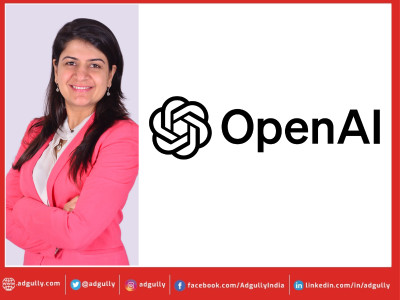


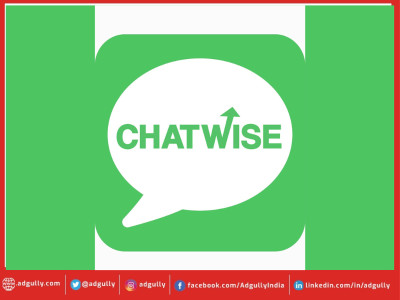



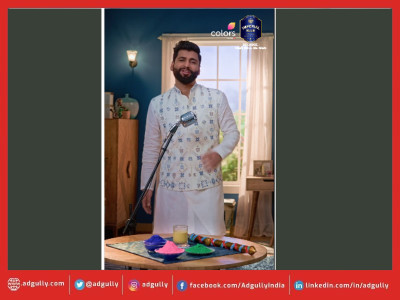
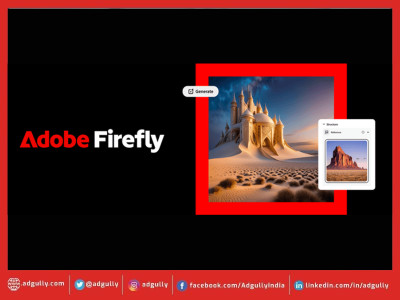
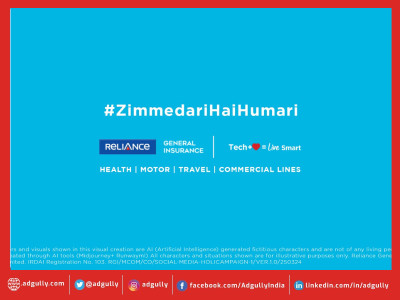
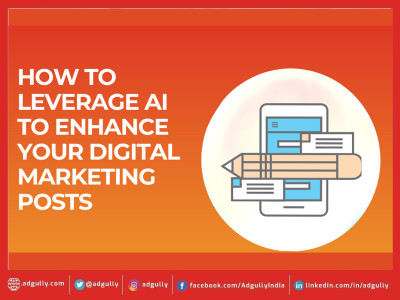



Share
Facebook
YouTube
Tweet
Twitter
LinkedIn